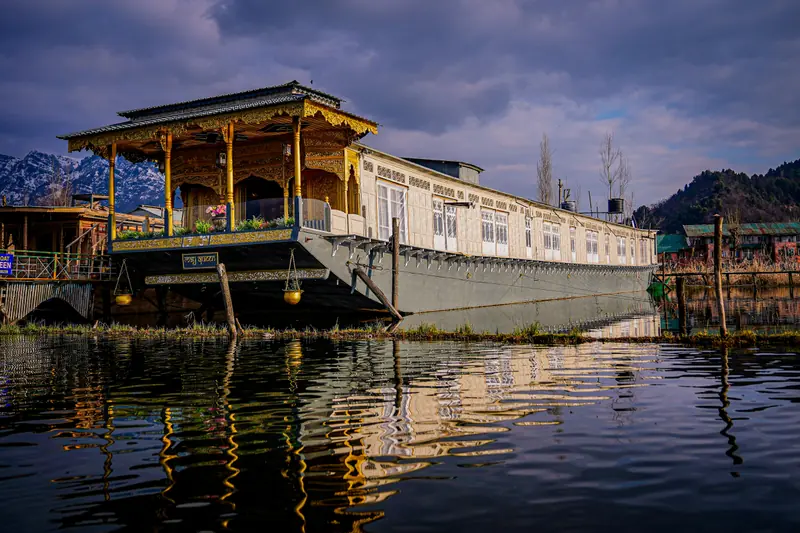Houseboats of Kashmir: Floating Homes, Floating Dreams
More than just tourist stays, houseboats are living stories of Srinagar — where water, wood, and warmth meet.

Houseboats of Kashmir: Floating Homes, Floating Dreams
They rest quietly on Dal and Nigeen Lake, their carved walnut balconies reflecting in still waters — but behind every Kashmiri houseboat lies a story of innovation, resistance, and timeless craftsmanship.
The tale of the houseboats begins in the 19th century, during the British Raj. The British, captivated by Kashmir’s beauty, longed to settle here — but a local law prevented non-Kashmiris from owning land.
So, they found a clever workaround:
if they couldn’t live on the land, they’d live on the water.
And thus, the Kashmiri houseboat was born — not as a local tradition, but as a British necessity, brought to life by Kashmiri artistry.
Over time, these floating wooden homes evolved into icons of the valley — symbols of both adaptation and artistry.
Every houseboat was (and still is) a masterpiece of hand-carved woodwork.
Built primarily with deodar or walnut wood, their panels bloom with intricate patterns — chinar leaves, lotus flowers, grapevines, and paisley swirls — motifs drawn straight from Kashmir’s natural poetry.
Each one bore names that carried romance and nostalgia:
Queen of Sheeba, New Buckingham, Flower of Paradise, Heaven’s Door.
Inside, lace curtains sway with the lake breeze, embroidered rugs soften every step, and the scent of kahwa lingers in the air. The craftsmanship isn’t just decoration — it’s identity, history, and heritage carved into wood.
For many families, houseboats aren’t just tourist stays — they’re homes.
Generations have grown up rocking gently on these waters, their lives tied to the rhythm of Dal and Nigeen Lakes.
Morning tea is sipped as shikaras glide past; evenings echo with laughter from tourists and locals sharing stories of seasons gone by.
This is mehmaan-nawazi — Kashmiri hospitality — at its most graceful: warm, poetic, and deeply human.
Today, Kashmir’s houseboats continue to welcome travelers from around the world. Though modern life has touched them — with Wi-Fi, solar panels, and online bookings — their soul remains unchanged.
Each houseboat still whispers the same story:
of a time when foreigners couldn’t own land,
of artisans who turned limitation into beauty,
and of a people who built floating legacies that still drift across Dal Lake — timeless and proud.
“A houseboat isn’t just a place to stay — it’s a poem floating on water, written by history, carved by hand, and kept alive by the heartbeat of Kashmir.”